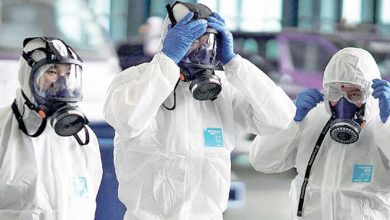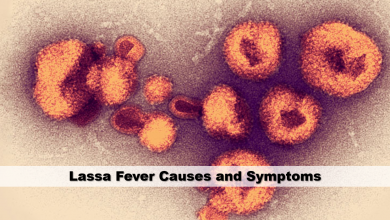The coronavirus outbreak opened the WHO to discussion

While the World Health Organization (WHO), which was established by the United Nations (UN) in 1948, was frequently criticized for its delayed decisions and transparency in the new type of coronavirus (Kovid-19) epidemic, the organization went through the most difficult period in its history in 2020.
The Kovid-19 epidemic, which broke out in Wuhan, China, continues to affect the world economy, people’s lives, freedom and habits in an extraordinary way.
WHO became aware of cases of “pneumonia of unknown origin” in the city through a bulletin published in Wuhan this week last year. In fact, these cases were the first appearance of the new type of coronavirus.
Unprecedented in history, this deadly virus has spread all over the world, from the Marshall Islands to Papua New Guinea. The number of Kovid-19 cases worldwide has exceeded 81 million, and virus-related deaths have exceeded 1 million 780 thousand.
Intense criticism of WHO
Headquartered in Geneva, Switzerland, and founded on April 7, 1948, WHO has 150 offices around the world and around 7,000 employees.
WHO, which conducts international studies on public health, is the only international platform that the world population of approximately 7.8 billion can trust in the field of health.
WHO, the global health authority, is accused of “being inadequate” in the fight against Kovid-19, “taking late steps”, “giving contradictory messages” and “continuing to pump fear into people who are hopeful about vaccine studies”.

However, the organization emphasizes that vaccines are only a part of the fight against Kovid-19, and that measures such as masks, distance and hygiene are continued.
US decision to withdraw from WHO
Tedros Adhanom Ghebreyesus, WHO Director-General, was elected to a five-year term on 23 May 2017 and took office on 1 July. Ghebreyesus, who became the target of the US administration in the Kovid-19 epidemic, almost challenged the criticisms against him and the organization.
US President Donald Trump accused the WHO of “not making the necessary reforms”, “being a puppet of China”, “acting with a focus on China” and “covering up the dimensions of the epidemic”.
The US administration also announced that it will officially withdraw from WHO on July 6, 2021.
Despite President Trump’s heavy accusations, Ghebreyesus called for “not to politicize the Kovid-19 epidemic”.
Has WHO been able to use its “unique” advantages in the fight against the epidemic?
WHO has a “numerous” and “unique” role in health around the world, such as exchanging information with member states on infectious diseases, providing “vital advice” on medical issues, coordinating vaccine efforts and providing equipment support to low-income countries. Since its establishment, 194 countries have become members of WHO.
WHO, which has both a directing and coordinating position in the field of health and a structure with wide powers, is in the position of a guiding organization on global health.
Articles 21 and 22 of WHO’s founding statutes set out the powers that allow the organization to take decisions that will be valid all over the world and that these decisions can be valid without being approved by the domestic legal mechanisms of the member states.
No other international organization has these powers of WHO.
Despite this power, the organization has been criticized for being ineffective while the epidemic ravaged the whole world.
“Do not close your borders with China”
On January 14, WHO’s Twitter account, citing Chinese officials, claimed that there was no concrete evidence that Kovid-19 was transmitted from person to person.
On January 30, when an “international public health emergency” was declared, the organization’s call for “don’t close your borders with China” was met with surprise.
According to many experts, this call paved the way for the virus to spread all over the world. WHO has denied these claims.
The organization declared the outbreak a global pandemic on March 11, after the virus spread to many countries.
“Mask Contradiction”
Although the organization has made insistent statements that healthy people do not need to wear masks since the first days of the epidemic, on June 5, it recommended to governments for the first time to wear masks in public transportation and public spaces.
The WHO’s recommendation to wear masks to healthy people, exactly 5 months and 5 days after the global emergency regarding the epidemic was declared, took place under the headlines of “mask contradiction” in the world press.
Discussions on the origin of Covid-19
From the first days of the epidemic, WHO insisted that the Kovid-19 virus was of natural origin.
As a matter of fact, in the statement made on April 21, the organization said, “(We do not know the source or origin of Kovid-19 yet. There is only one thing we are sure of, and that the virus originated from an animal. It was not manipulated in a laboratory.”
US President Donald Trump, on the other hand, said on May 1 that he saw evidence that Kovid-19 came out of a laboratory in Wuhan, China. The organization, on the other hand, insisted that the virus is of natural origin in the face of Trump’s statements.
WHO scientific delegation has not yet gone to Wuhan
A team of researchers within the organization held a virtual meeting on the origin of Kovid-19 with Chinese experts at the end of October. However, although 1 year has passed after the symptoms of the virus appeared in Wuhan, the WHO scientific delegation to investigate the origin of Kovid-19 has not yet reached Wuhan.
The organization acknowledged that despite ongoing research, little is known about “how, where and when the virus began to spread” in Wuhan.
It has been reported that 10 international scientists will go to Wuhan next month to investigate the origin of the virus, 1 year after the first death from Kovid-19 was recorded in China.
Transparency criticism
WHO Director-General Ghebreyesus holds virtual press conferences two days a week with the online video conferencing application Zoom. Hundreds of journalists from around the world attend these meetings. However, since the participants are hidden on the screen, they do not know who is attending the meetings. All press conferences held at the UN Geneva Office are open to the press.
The fact that the WHO, an organization under the UN, closed its doors physically to the press at a time when the biggest health problem of the last century was experienced and only held online meetings caused heavy criticism.
Geneva-based journalists describe WHO’s press conferences as “blind webinars”.
As a matter of fact, the WHO media team took the last place in the traditional year-end survey organized by the Association of Press Members Accredited to the UN Geneva Office (ACANU).
67 percent of the international journalists who participated in the survey agreed that the WHO media team managed the Kovid-19 outbreak “badly”.
ACANU published the survey results on Twitter.
ACANU, the UN’s 71-year-old journalist organization, and the Swiss Association of Foreign Journalists (APES) sent letters to Director-General Ghebreyesus to “ensure greater access to information and transparency”.
The claim that “WHO’s policies are being guided”
Following the US decision to withdraw from WHO, the Bill & Melinda Gates Foundation has become the organization’s number one financier. It was stated that Ghebreyesus won the WHO elections with the support of Bill Gates.
One of the most serious criticisms of the organization during the pandemic period has been the allegations that some multinational non-profit groups, such as the Bill & Melinda Gates Foundation, whose transparency is controversial, are directing “WHO’s policies”.
WHO’s “COVAX” success
Experts say that despite all the criticism, “a great job has been achieved” with the Kovid-19 Vaccines Global Access Program (COVAX), which is carried out under the coordination of WHO.
WHO announced that 2 billion doses of vaccine will be distributed to middle and low-income countries in 2021 with the COVAX initiative.
Fair distribution of Covid-19 vaccines has been planned with COVAX, and 190 countries have participated in this initiative so far.
COVAX, which was established for rich countries to support low and middle income countries, came to the fore as WHO’s “biggest success” in the epidemic.
WHO’s past achievements offer hope for Covid-19
WHO has the world’s most important scientists in the field of epidemiology.
These experts also attend the press conferences organized by Ghebreyesus. The organization has started to give consistent messages in the fight against Kovid-19, especially in recent months.
WHO’s past successes against smallpox, polio and Ebola give humanity hope for ending the Covid-19 epidemic. WHO Director-General Ghebreyesus made a call for “global solidarity” in almost all the press conferences he held.
“If one of us is not safe, no one is safe,” said Ghebreyesus, warning against “vaccine nationalism”.
Ghebreyesus held the last press conference of the year on Monday, “None of us can end an epidemic by ourselves, but we will end this epidemic together.” finished with his words.





